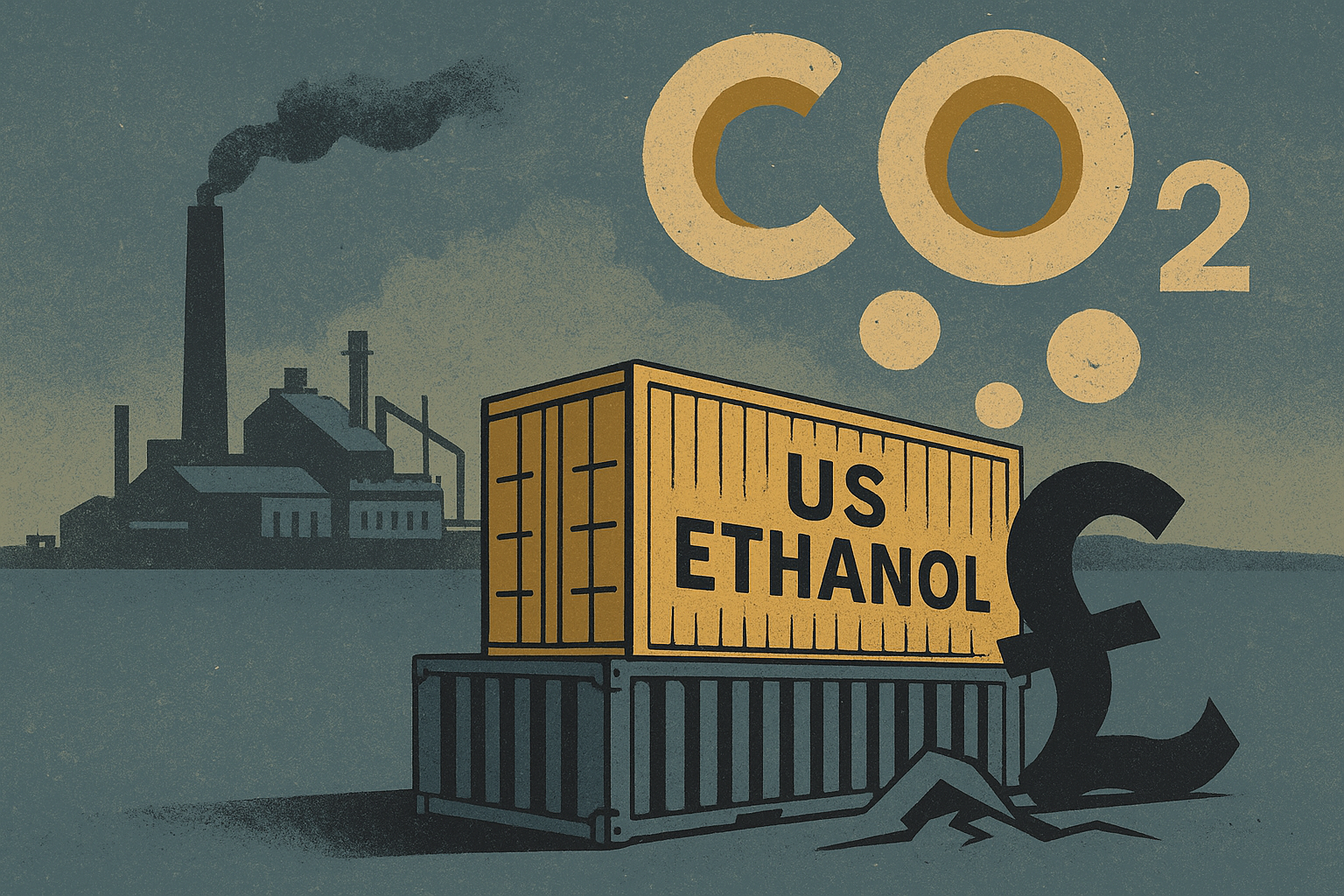The UK’s largest producer of high-purity carbon dioxide has warned it may be forced to halt operations within weeks, after a new UK-US trade deal removed key protections for British-made bioethanol. Ensus, which operates a major plant at Wilton on Teesside, says it cannot remain viable in the face of surging imports of cheaper US ethanol unless the government steps in with urgent financial support.
The facility converts UK-grown wheat into bioethanol used in E10 petrol and captures carbon dioxide as a by-product. That CO₂, sold into the commercial gas market, is essential for the production of soft drinks, food preservation, medical procedures, and cooling systems in nuclear facilities. According to Ensus, it currently supplies around 30% of the UK’s CO₂ demand.
The company says it is now facing a critical decision on whether to proceed with a scheduled maintenance programme in September. Without confirmation of government assistance, the company is expected to begin a full wind-down, leading to a loss of skilled jobs in the region and further pressure on UK industrial gas supply chains.
The risk has emerged following a trade agreement signed in May, which removes the 19% tariff on up to 1.4 billion litres of US-produced bioethanol entering the UK each year — a volume that roughly matches total UK demand. While UK bioethanol producers source grain and energy domestically, US counterparts benefit from significantly lower feedstock and energy costs, giving them a clear price advantage under the new regime.
Ensus chairman Grant Pearson called for “tens of millions” in emergency government subsidies to avert the closure, telling The Times the company was now “at the eleventh hour.” He said the plant’s future hinged on support being confirmed within a matter of weeks.
The issue has raised broader concerns about the UK’s reliance on a shrinking number of domestic CO₂ producers. In 2022, CF Fertilisers closed its Billingham site — previously a major supplier of industrial carbon dioxide — leaving Ensus as one of the few remaining large-scale producers in the country. The firm’s exit could expose the UK to volatile international gas markets and create further supply instability.
A spokesperson for the Department for Energy Security and Net Zero said government officials, including the Business and Transport Secretaries, had recently met with representatives from the bioethanol industry and were “considering the options available.” No formal subsidy package has been announced.
A second major UK bioethanol facility — Vivergo Fuels in Humberside, owned by Associated British Foods — has also raised concerns over its viability, although it does not produce CO₂. The company warned last week that without intervention it may be forced to wind down operations due to the same competitive pressures.
Industry figures are also calling for longer-term reforms to support domestic bioethanol production. Proposals include increasing the ethanol blend in petrol beyond the current E10 level and accelerating the use of domestically produced bioethanol in sustainable aviation fuels. However, these measures would require several years to implement and offer no immediate relief to producers.
The government has defended the trade agreement as part of a wider effort to deepen UK-US economic ties, and says it is exploring ways to support affected industries. Ensus and its supporters argue that without prompt action, the UK could lose a critical domestic industry — and a vital source of an essential, if often overlooked, industrial gas.




